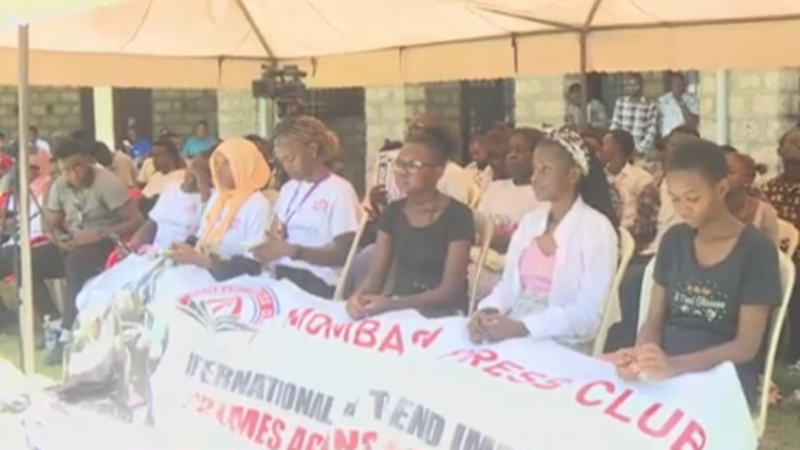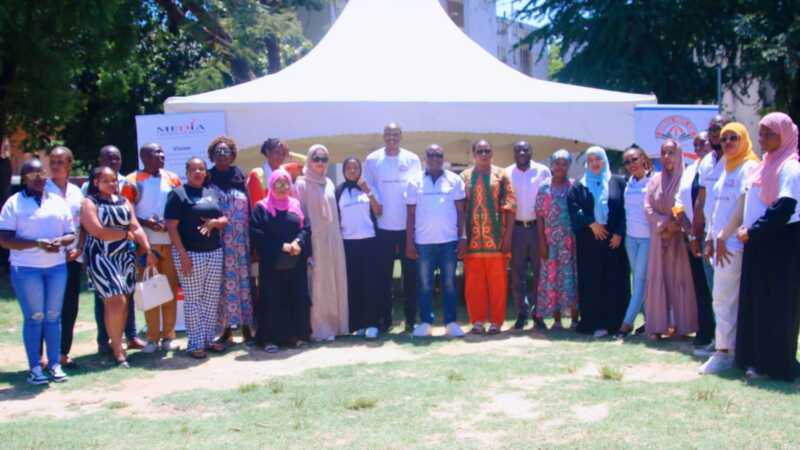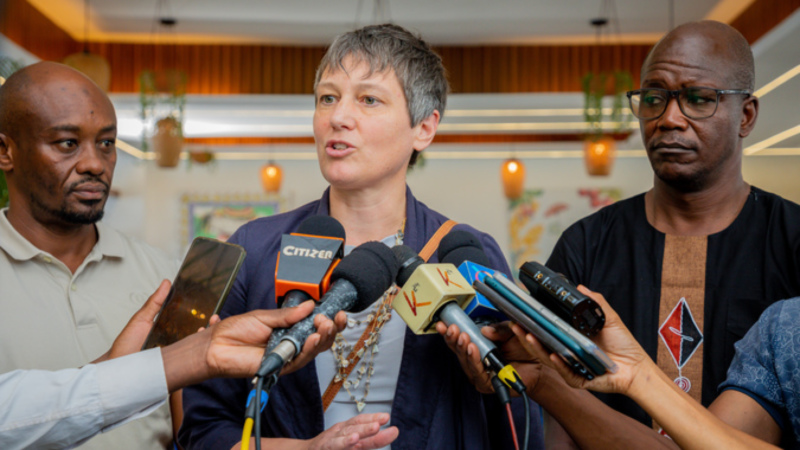By Allan Kai
In partnership with the German development organization (GIZ), the Kenya Editor Guild began a two-day session on climate change reporting for Mombasa journalists and editors.
The event, held at Pride Inn Paradise Resort, Shanzu, brought together journalists from various newsrooms in Mombasa to discuss their challenges in climate change reporting.

Maureen Mudi, the Media Council of Kenya Regional Coordinator (Coast), was among those in attendance. Mudi welcomed the initiative, stating, "When journalists come together, opportunities are created, and solutions are reached much easier."
Mudi further stressed the importance of journalists updating themselves on information and knowledge in forums such as these to become well-rounded professionals.
The forum is meant to help the KEG and the GIZ develop a curriculum for journalists to report adequately, comprehensively, and in a relevant way that the typical Kenyan mwananchi can understand.
"We need to take advantage of collaboration opportunities to understand the conversation on climate change. This will enable us to create better-focused and result-oriented stories that will change the world." Said Martin Masai, KEG Trustee

Martin Masai, KEG Trustee speaking to journalist at the event. Photo: Wendy Naguddi KEG
Speaking to Gilitics Media, Dr. John Recha, a research scientist on climate change, expressed the adverse impact of climate change on various sectors, such as agriculture, health, economy, energy, and water. He further lamented journalists' inadequate reporting on these matters.
"One of the things that we have observed as a team of scientists in the last ten to twenty years is that the impacts of climate change are becoming more adverse, affecting different sectors of society, and the level of reporting that is getting into the causes of climate change and the impact as well as solutions is not that adequate," Said Dr. Recha.
Dr. Recha alluded to the current level of reporting associated with the floods affecting various parts of the country, where journalists fail to capture the climate change aspect of the situation and share information that may help avert some of the calamities rather than wait for calamities to occur and report time and time again.
Dr. Recha further discussed the underlying factors causing climate change to familiarize the journalists with how the problem has developed.
Ken Bosire, who is in charge of programs at the KEG and a seasoned editor in the Kenyan media fraternity, emphasized the gap in reporting on climate change.
"The current reporting on climate change in Kenya is very superficial. So what we are doing here with GIZ and government is to try and crystallize the thematic areas, and what climate and the change mean and impose and train journalists on how to report and point them out to stories." Bosire told Gilitics Media.
Bosire further stressed the intention to develop a curriculum focusing on climate change as a niche in which journalists can find stories and build their careers in a field that may interest them.
Speaking on behalf of the government, Temesi Mukani, Head of Public Communication at the Ministry of Climate Change and Forestry reiterated the importance of the interaction and training of journalists, calling media an important partner and an accountability arm for the government in spreading the information on the adverse effects of climate change to the masses.

Temesi Mukani, Head of Public Communication at the Ministry of Climate Change and Forestry Photo: Wendy Naguddi - KEG
"Despite the 15 billion National Tree-growing Program and other interventions, the government is keen to ensure that Kenyans are protected from the adverse effects of climate change. One of the most significant stakeholders is the media because the media can inform and educate the masses on mitigation measures and adaptation to climate change. This training is part of that capacity building of the press so they can tell climate stories more factually and effectively and contribute to finding solutions to climate change."
Kennedy Ouma, the Advisor for Climate Communication at GIZ Kenya, said journalists do not comprehend the climate lingua. Therefore, they saw it fit to develop a program that would support journalists in understanding the technical language of climate change and inform them while they do their reporting.

Kennedy Ouma, the Advisor for Climate Communication at GIZ Kenya addresses the attendees at the climate change reporting training in Mombasa. Photo: Wendy Naguddi - KEG
"We began by identifying the gaps for reporting on climate change for editors and reporters. So, we are meeting with journalists from across the coast to identify gaps hindering them from reporting constructively and conclusively. Key stakeholders, including government, learning institutions, and experts, will scrutinize the model we develop as we work to include it into the mainstream curriculum." He said.
Ian Kiptoo, a journalist with Blue Radio, was excited about the opportunity, terming it an invaluable learning experience to help with professionalism and confidence in matters related to climate reporting.
"For me, especially working for a media company with a specific focus on the blue economy, youth, and climate action, this training is a welcomed opportunity to help me develop and learn the nitty gritty required when reporting climate change," Kiptoo told Gilitics media.
The training will end tomorrow, 30/04/2024, where the journalists and experts will develop solutions to help solve the issue associated with climate change reporting.












